First, a disclaimer: I like at least some parts of all three of the recent Star Wars trilogy movies. I think Daisy Ridley, Adam Driver, John Boyega, and Oscar Isaac are all great actors. And I think J.J. Abrams and Rian Johnson are entertaining storytellers.
With all that said, even the best talent can’t fix a story with an unresolvable flaw.
Ever since Star Wars: The Rise of Skywalker ended the Rey and Kylo trilogy on a sour note because of its broken mystery box approach to storytelling, even the cast members have been expressing a mix of frustration and bewilderment at the new trilogy’s botched momentum and blown opportunities.
The most recent news comes from Rey herself. During a Daisy Ridley interview on Jimmy Kimmel Live with guest host Josh Gad, Ridley mentioned that the answer to the mystery of Rey’s parentage was never set in stone.
“It came to Episode IX & JJ pitched me the film and they were like 'Oh yeah Palpatine’s grandaddy' and I was like 'Awesome' and then two weeks later he was like 'Oh we're not sure…' So it kept changing. So even as we were filming I wasn’t sure what the answer was going to be.” https://t.co/WhSm2ZDc4n pic.twitter.com/pAIFPmuXH9
— sleemo (@sleemo) September 9, 2020
So, to sum it up:
Evidently J.J. Abrams, the initial creator of the new trilogy and the co-writer and director of The Force Awakens, originally intended for Rey to be descended from Obi-Wan Kenobi. But he didn’t sign on to do the next two movies in the franchise, nor (apparently) did he convey his intentions to Rian Johnson, who helmed the second film, The Last Jedi. So Johnson twisted the plot by having Kylo Ren reveal that Rey’s parents were “nobodies.” When Abrams returned to conclude the trilogy (after much fan backlash over Johnson’s film), he now decided that Rey would be descended from Emperor Palpatine… maybe.
In the end, that’s the story we got, and that’s what the Star Wars canon will reflect.
But the fact that Rey Palpatine could just as easily have been Rey Kenobi or Rey Nobody before she chose to become Rey Skywalker reveals a crucial problem at the core of the new trilogy.
In fact, Ridley’s comments provide the answer to a question I’ve been wondering for months: why exactly doesn’t the new Star Wars trilogy work at a basic story level?
And I think I’ve figured it out.
It’s actually due to two different fundamental storytelling problems.
The Two-Director Problem
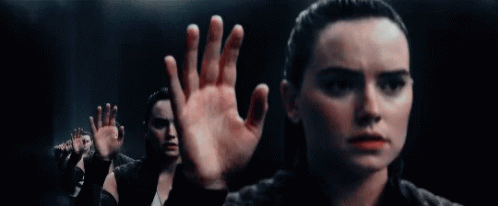
First, let’s get the obvious point out of the way: having two different writer-directors define the story without either of them actually working in sync with the other one is a recipe for disaster.
The catch is, it didn’t have to be.
Sure, Abrams could have fully outlined the entire trilogy and handed that blueprint to producer Kathleen Kennedy and writer-director Rian Johnson prior to departing after the first film, which could have led to authorial consistency. But that would require Abrams to know the end to his story before he gets there, and as he’s proven time and again, that’s not how his mystery box works (or “works,” since it never really… does).
But not having an ending set in stone still wasn’t necessarily a problem as long as two other things were true: if the writer-director of the second film had approached storytelling the same way Abrams does, and if the characters’ arcs had been so well established by the first film that their endpoints were inherently clear, the trilogy still could have clicked.
The problem is, neither of those things was true.
I want to pause the character arc issue for a second, because it’s the most important part of this discussion and I want to give it its full due. But before we get there, we need to understand exactly why Abrams and Johnson were so poorly suited to share narrative duties on this particular trilogy.
Dueling Worldviews
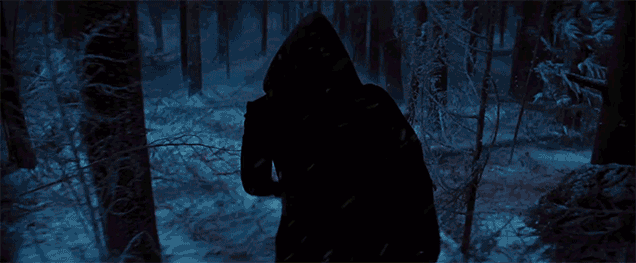
Star Wars, at its core, is a story about overcoming fear.
In the prequel trilogy, Anakin is poisoned by fear and he turns to the dark side.
In the original trilogy, Luke faces his fears and helps his father regain his humanity.
In the new trilogy… well, we never quite know what it’s about, because it was designed by two mismatched storytellers who approach filmmaking from two very different perspectives.
Rian Johnson tells stories about identity.
J.J. Abrams tells stories about information.
If you look at Johnson’s other films, like Looper and Knives Out, his characters are perpetually struggling to define their place in the world. They wrestle with the impact of their choices, and the effects that their actions have on others.
If you look at Abrams’s other works, like Alias, Lost, and the Star Trek reboot, his characters aren’t really characters at all; they’re types. They exist to serve the real centerpiece of an Abrams story, which are the plot twists that revolve around who knows what, and when, and what they do with that information.
Johnson’s stories question how the world works.
Abrams’s stories are just a series of questions.
Thus, when Johnson was handed the reins to all of the loose ends that Abrams thought were the centerpiece of his story — Who are Rey’s parents? Who is Snoke? Why did Kylo turn to the dark side? Why was Luke hiding on Ahch-To for so many years? — Johnson responded by jettisoning nearly all of it, because his style of storytelling didn’t need it.
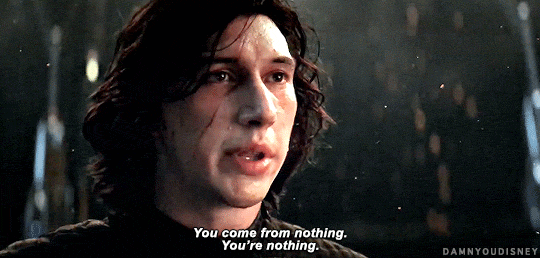
Who are Rey’s parents? Nobody.
Who was Snoke? Doesn’t matter.
Why did Kylo turn to the dark side? Because Luke was (hey, look at that) gripped by fear and nearly killed him.
Why was Luke hiding on Ahch-To for so many years? Out of shame and distrust of his own identity as a teacher, a Jedi, and an uncle.
Meanwhile, Poe was learning difficult lessons about what heroism in wartime really looks like from Admiral Holdo while Finn and Rose were navigating the flip side of that coin: the economic exploitation of war profiteering. Their half of the story provides an opportunity for Finn to proudly declare his new identity (“Rebel scum!”) and for Rose to save Finn from a suicide mission against the First Order because love is what separates the rebels from the empire.
And if Johnson had concluded the trilogy, those setups — including the powerful image of a random stable boy evidently having force abilities,which underscores the film’s central theme that anyone can make a difference regardless of where they come from or what they’ve done before — could have paid off and the trilogy still could have felt cohesive.
Instead, Abrams returned and essentially undid most of Johnson’s choices, just as Johnson had discarded Abrams’s.
If Abrams was going to do that, he should have at least done so in order to execute his own planned ending. But as we now know, Abrams never really had a plan.
And that brings us back to the flaw that no amount of director roulette could have saved: the characters in the new Star Wars trilogy don’t have character arcs, because…
The New Trilogy’s Characters Don’t Have a Purpose
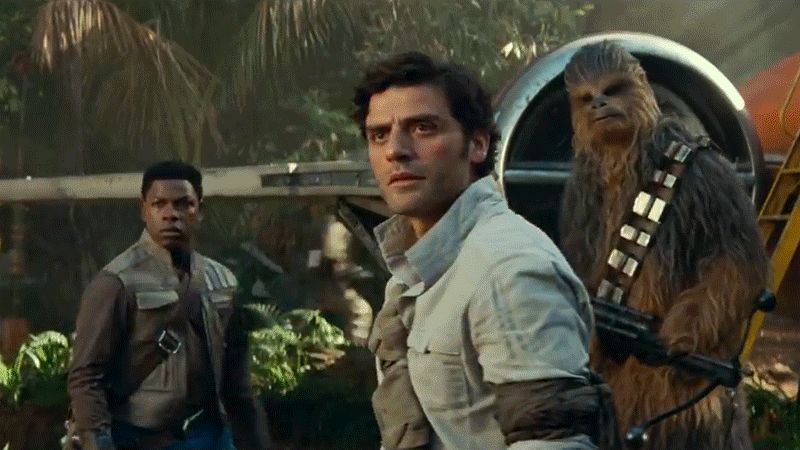
And I mean this on two levels: they don’t have a purpose within the narrative, and they don’t have a unique purpose within the constructed world of Star Wars.
In order to really understand this, let’s pause for a second and look back at the original trilogy.
Ask yourself two questions about each central character:
What does Luke want, and what is his purpose?
Luke wants to get off Tatooine. He wishes he could be a fighter pilot like his friend Biggs, and he also wishes he knew who his father was. He wants to be a hero, but he learns that being a hero means hard work, struggling, suffering, and risking everything. His purpose in the world’s structure is to rekindle the ways of the Jedi and use their mystical abilities to end the Empire’s evil reign, and his narrative purpose is to serve as a constant heroic opposition to Darth Vader.
What does Leia want, and what is her purpose?
Leia wants to lead the Rebellion against the Empire. She despises Darth Vader and is initially laser-focused on winning the war against him, until she falls in love with Han and risks her own life to save him from Jabba the Hutt so they can rejoin the Rebellion together. Her purpose in the world’s structure is as a wartime leader who will do whatever it takes to defeat the Empire, and her narrative purpose is initially as the damsel in distress / love interest, but she’s designed as a much more capable twist on that “helpless” trope right from the jump.
What does Han Solo want, and what is his purpose?
Han wants to get paid, stay alive, and — much like Rick Blaine in Casablanca — stick his neck out for nobody. But when he gets mixed up in Luke’s rescue mission to save Leia, a mix of romantic attraction and nagging honor causes him to commit himself to the Rebel cause. His purpose in the world’s structure is as a smuggler and pilot who enlists his ship in the Rebellion, and his narrative purpose is as the comic relief and sexy swagger counterpoint to Luke’s more doe-eyed classical heroism.
What does Darth Vader want, and what is his purpose?
Darth Vader wants to serve his Emperor, dominate the galaxy, and wipe out the Rebellion — and the Jedi — completely. He is arguably the most important character in the original trilogy, both as the source of endless problems for the heroes and as (surprise twist!) Luke’s corrupted father, whose last-minute redemption brings the Empire crashing down upon itself. His purpose in the world’s structure is as the second-in-command of the evil Empire that rules most of the galaxy, and his narrative purpose is as the iconically terrifying arch-villain and bearer of the ultimate bad news.
Makes sense, right?
Now, let’s ask the same questions of the main characters in the new trilogy.
Here’s Where the Mystery Box Collapses
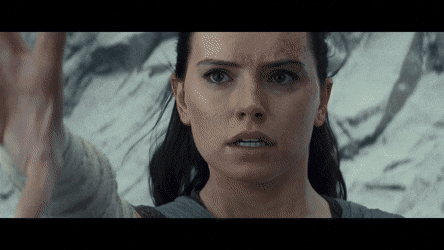
What does Rey want, and what is her purpose?
What does Kylo Ren want, and what is his purpose?
What does Finn want, and what is his purpose?
What does Poe want, and what is his purpose?
You can’t really answer that, can you?
At best, we could say…
Rey wants to know who her parents are… but she doesn’t really want anything other than that, does she?
Her narrative purpose is to serve as the Jedi half of the trilogy’s two main force users, and her purpose within the story’s structure is to kill Palpatine when he returns from the dead… but why?
Unlike Luke and Leia, Rey has no motivation to oppose The First Order, or to oppose Palpatine himself aside from him attacking her. In The Force Awakens, Rey is just trying to stay alive as a scavenger on Jakku. When she and Finn escape Jakku in the Millennium Falcon, it’s a fun set piece, but it doesn’t necessarily align with her character’s lone goal of figuring out who her parents are. After that, she finds a new home and new “family” among Han, Leia, and the Rebellion, but… that also technically satisfies her arc, doesn’t it?
In other words: Rey doesn’t want anything that leads her to make active choices. Instead, she’s always reacting to incidental circumstances. From a narrative standpoint, she wants to find out more about Kylo Ren only because J.J. Abrams wants us to want to find out more about Kylo Ren. Instead of serving as a hero, Rey ends up serving as a mix between an audience surrogate and an obligatory “chosen one” in a battle that she initially has no personal stake in.
Within Johnson’s pre-“Palpatine has returned” portion of the story, Rey seemed positioned as an emblem of a new kind of force user: a sign that anyone could tap into the force, rather than it being relegated to a specific bloodline. But with Abrams forsaking that thread, her story remains trapped in questions of lineage. (For bonus reading, Jenny Nicholson has a brilliant take on The Rey Ancestry Problem on Twitter.)
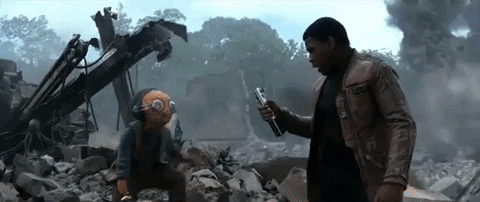
What does Finn want? I don’t think that’s ever made clear.
Once he escapes from the Empire — a classic Abrams trope of flipping a character type, in this case showing that a Stormtrooper can actually become a good guy — he spends the next two and a half movies trying to protect Rey, even though she’s proven that she can take care of herself. The Rey-Finn-Poe friendship is one of the more heartwarming aspects of the new trilogy, but it doesn’t serve a clear narrative purpose. As a former Stormtrooper, Finn doesn’t provide much new information or insights about the Empire. He seems to be a force user, but that’s never fully explored. And most frustrating of all, his narrative purpose in the third film is literally to just keep almost telling Rey something important which he never actually reveals. This reduces what could have been the most interesting character in the entire new trilogy into a redundant sidekick: there’s nothing Finn does in Rise of Skywalker that Poe or Rey couldn’t have done on their own.
Speaking of Poe, he famously wasn’t supposed to survive The Force Awakens, but Abrams and Kennedy decided to keep the character around. As much as we all love Oscar Isaac, we still need to step back and ask: why? I don’t even know what Poe wants, much less what his narrative purpose is beyond hiding the secret of Luke’s whereabouts inside BB-8 in the trilogy’s opening scene.
As for Kylo Ren, he does have a clear desire, which is to be in charge of The First Order… but again: why?
It’s never sufficiently explained why Luke nearly killing Ben Solo in a moment of weakness and doubt would drive him to become Kylo Ren, the very thing that Luke feared he’d become. If we accept that his entire motivation is to finish what his grandfather Anakin / Darth Vader started, then why is he so obsessed with Rey? More confusingly, why does he bother getting involved with Palpatine at all? By the time Rise of Skywalker happens, the Rebellion is down to its last few members while The First Order controls everything else. What advantage does Kylo Ren get from suddenly committing himself to Palpatine’s random plan when he’s already winning on his own?
(Also, how did Palpatine get the materials to build a fleet of Star Destroyers without anyone else in the galaxy noticing?)
I could go on, but the point is…
A Character Can’t Have an Arc Without Direction
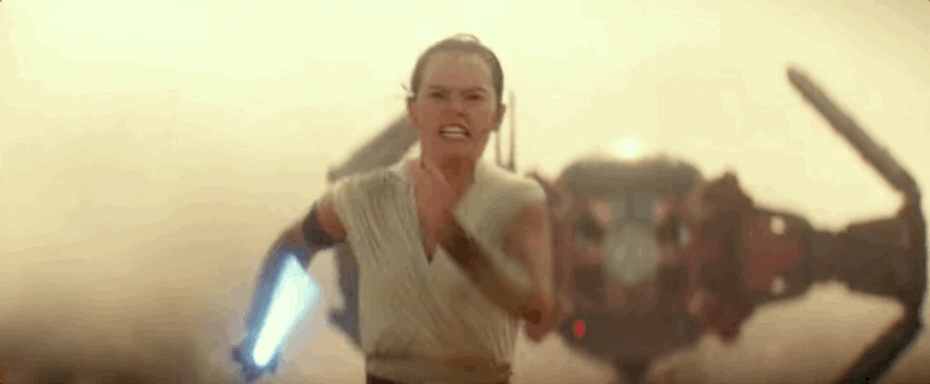
Rey, Finn, Poe, and Kylo Ren spend two thirds of their trilogy chasing information, one third coming to grips with who they really are, 100% of their time in service of the plot, and almost no time at all pursuing their own wants and needs because they are never stated.
With no direction, they’re not characters in service of a theme (every Johnson story), just types on a quest for answers (every Abrams story).
If you think I’m being too reductive, ask yourself this:
What would success look like for each of those characters, and why?
What would make Rey happy? Apparently, it’s deciding she’s a Skywalker because… they were nice to her?
What would make Finn happy? Apparently, it’s destroying The First Order. (Sorry, Rose, but evidently love’s got nothing to do with it.)
What would make Poe happy? Apparently, it’s destroying The First Order. (Hey, where have we heard that before…)
What would make Kylo Ren happy? Aside from finally getting a girl to like him, I still have no idea.
What would make Snoke happy? lololololololol
Abrams handed Johnson a puzzle that he didn’t know the answer to. Johnson discarded the puzzle and tried to turn Abrams’s types into characters in service of larger themes. Abrams rejected those themes and used glue, tape, and string to cobble together answers to questions that his characters had already stopped asking, all in the interest of fan service disguised as closure, because his mystery box was empty.
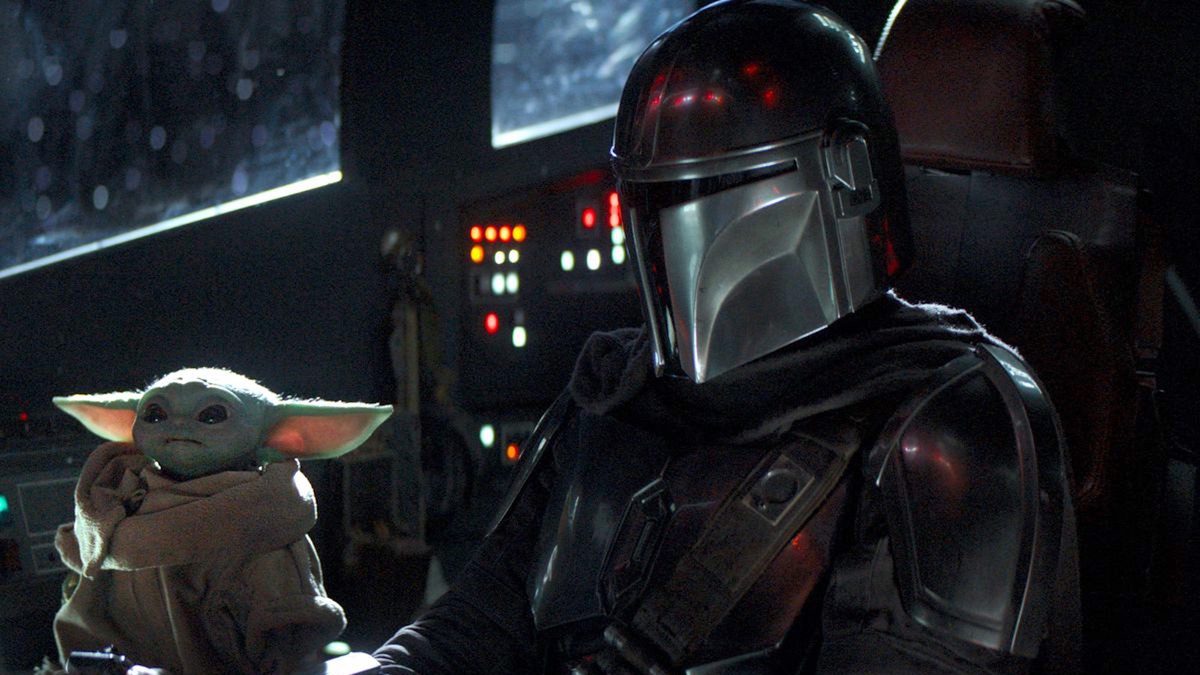
Meanwhile, The Mandalorian succeeds on Disney+ primarily because what the main character wants — to keep baby Yoda alive — is in direct opposition to the main character’s purpose within that story’s world, which is to deliver the kid to a client who undoubtedly has very bad plans for that child.
Is it simple? Yes.
Have we seen this kind of plot before? A million times.
Does it work? Absolutely, because the character’s direction and opposition are clear.
Conflict arises from obstacles that stand between us and our wants and needs. Character arcs are built between those two points.
But you can’t have character arcs without clearly-defined wants, needs, and purposes.
And if you don’t have character arcs, you don’t have a story.
That’s as true today as it was long, long ago in a galaxy far, far away.
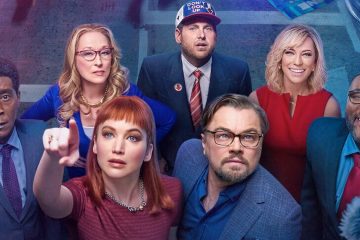
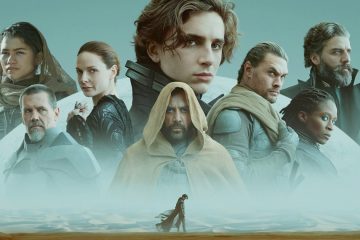
1 Comment
Maven · October 20, 2020 at 3:49 pm
Omg another Johnson apologist.
Reddit already solved what Johnson was after.
https://www.reddit.com/r/saltierthancrait/comments/8tusr7/25_ways_rian_johnson_propped_up_kylo_ren_in_the/
JJ left a very simple story that a child could have followed/completed.
But Johnson wanted a Kylo Ren trilogy, so he set about retconning what JJ had already set in stone.
That is ultimately what derailed the trilogy and sealed it’s fate.